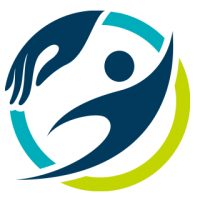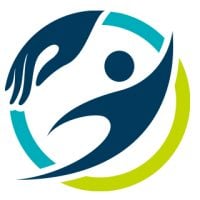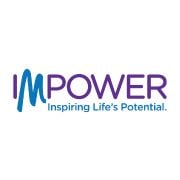
ACT Center - Apopka
Drug Rehab Center in Apopka, Florida
- Substance Abuse
- Opioid Addiction
- Dual Diagnosis
- Drug Addiction
- Alcoholism
ACT Center - Apopka is an addiction treatment facility in Apopka, FL that offers personalized drug rehab programs with individual therapy, group therapy, family therapy, and holistic therapies for individuals struggling with substance abuse and co-occurring mental health disorders, which is accessible through private health insurance.
Multiple patients have reported ACT Center - Apopka as permanently closed.
Research other rehabs in Apopka, Florida, or get help finding an open facility.
Our experts will find you an alternative facility.
(888) 674-0062 24/7 Free, Confidential, Expert HotlineAbout This Florida Facility
ACT Center - Apopka in Apopka, Florida is a drug treatment facility that specializes in helping individuals struggling with alcoholism, opioid addiction, substance abuse, dual diagnosis, and drug addiction. They offer a range of services to support individuals on their journey to sobriety. ACT Center - Apopka provides various levels of care, including drug rehab and outpatient treatment options. This facility accepts private health insurance, making it accessible to individuals seeking professional help for their addiction.
With a commitment to providing comprehensive treatment, ACT Center - Apopka offers a variety of services to address addiction and substance abuse. Their approach includes dual-diagnosis treatment, which recognizes the connection between substance abuse and mental health disorders. Through a combination of therapy, counseling, and evidence-based treatment methods, ACT Center - Apopka helps individuals identify and address the root causes of their addiction. Whether through individual therapy sessions, group counseling, or family support programs, this facility aims to support each individual throughout their recovery journey and empower them to achieve lasting sobriety.
Genders
Ages
Modality
Additional
Conditions and Issues Treated
Substance Abuse Treatment is important when getting sober, as it helps addicts learn the skills they need to live a clean life. There are many different kinds of recovery treatment, including medication-assisted therapy, behavioral therapeutic approaches and self-help groups, as well as counseling.
Opioid abuse has become a national epidemic in the last decade. The US has one of the world’s highest rates of opioid use and abuse, as well as opioid-related deaths. Opioids are classified as Schedule II-IV controlled substances in the US due to their high potential for abuse.
Oxycodone, hydrocodone, methadone, and fentanyl are the most common Opioids and are commonly prescribed to treat pain. Tolerance to opioids develops over time, making life difficult, if not impossible, without them. Opioid users often obtain the drugs illegally. They can be drug dealers, friends, or family members who do not have valid prescriptions.
The desire for a more intense high than prescription opioids can quickly lead to heroin use. Heroin users are more prone to illness and death due to the high risk of overdose.
Many opioid addicts who seek treatment believe that the only way to overcome their addiction is through medical detox and long-term drug addiction rehab. To help patients wean off their addiction and reduce the risk of overdose, medication-assisted therapy (MAT) involves prescribing a replacement opioid. Doctors use MAT in conjunction with other anti-craving medications to help patients maintain recovery. Due to the high risk of relapse, MAT is often combined with individual and group counseling and social support programs.
When addiction and psychiatric issues co-occur, the addict’s recovery is more successful when both conditions are treated. A dual diagnosis refers to a condition in which the patient is diagnosed with two health issues: addiction and bipolar disorder. The most common therapies are psychotherapy, behavioral therapy, spiritual counseling, 12-step programs, and medication management.
Levels of Care Offered at ACT Center - Apopka
This center offers a variety of custom treatment tailored to individual recovery. Currently available are Drug Rehab, Dual-Diagnosis, Outpatient, with additional therapies available as listed below.
An outpatient treatment program is set up to help with alcohol or drug addiction or a co-occurring disorder. The patient must attend the facility for their therapy and other programs but can return home each night.
The frequency of mandatory attendance decreases after much of ACT Center - Apopka‘s program is complete.
Outpatient treatment is a recovery approach that allows recovering addicts to live at home while getting rehab for addiction
An outpatient can include day treatments which include attending group sessions one hour per week. A person living in an outpatient environment may be allowed the opportunity to work full time if they choose to and continue studies without interruption from drugs/alcohol.
Outpatient treatment is an option for people who want to maintain their careers and families. Outpatients live at home but attend treatment such as individual counseling, group counseling, or twelve-step meetings during the day.
Therapies & Programs
Family therapy is a crucial part of drug treatment and getting sober. It is one of the most effective ways to help addicts stay on the path to long-term sobriety. An addict’s family can play a vital part in helping them to avoid relapse. They can spot the warning signs and help them get back on track.
In group therapy, recovering addicts meet with a therapist and other people in recovery. Some groups are closed, meaning only people who share the same addiction or problem can attend. Others are open to anyone who wants to stop using drugs or drinking alcohol. Group therapy sessions typically focus on one topic each week or month so that recovering addicts can discuss issues they face daily.
Cognitive Behavioral Therapy (CBT) is based on the idea that how we feel, think and act all interact together. It helps people explore their thoughts for problems (or false beliefs) that influence their mood and actions. CBT is very goal-oriented, which means that the therapist and patient work together on a specific problem. In addition to helping a client focus on thoughts that can be changed, CBT also allows them to take an active role in their treatment. Our thoughts determine our feelings and behaviors; our feelings affect our thoughts, and our behaviors change our thoughts and feelings.
Drug and alcohol addiction can lead to a breakdown in life skills. Learning certain life skills can help those who are struggling with addiction. Life skills training at ACT Center - Apopka in Apopka, FL teaches patients skills such as time management, budgeting, and social abilities to improve their quality of life and prevent relapse.
An addict’s life skills are maladaptive, meaning they are counterproductive. An addict may have learned poor time management skills growing up, have a hard time budgeting money, or be socially awkward. An addict’s poor life skills can lead to relapse and the inability to achieve long-term sobriety. Life skills training teaches patients effective coping mechanisms, which can help them live a clean and sober life.
Payment Options Accepted
For specific insurance or payment methods please contact us.
Is your insurance accepted?
Ask an expert, call (888) 674-0062
ACT Center Associated Centers
Discover treatment facilities under the same provider.
- ACT Center - Winter Park in Winter Park, FL
- ACT Center - Kissimmee in Kissimmee, FL
- ACT Center - Orange Blossom Trail in Orlando, FL
- ACT Center - Silver Star Road in Orlando, FL
- ACT Center - Orlando in Orlando, FL
Learn More About ACT Center Centers
Additional Details
Specifics, location, and helpful extra information.
Apopka, Florida 32712 Phone Number(407) 880-2203 Meta DetailsUpdated November 25, 2023
Staff Verified
Patient Reviews
There are no reviews yet. Be the first one to write one.
Apopka, Florida Addiction Information
Florida is one of the nation's epicenters for substance abuse and drug-related overdoses. In 2014, around 410,000 Florida residents were addicted to drugs and alcohol. Over the last 10 years, 12% of all deaths in the state were attributed to substance abuse. Treatment admissions for alcohol reached 24,329 patients in 2016, and 2.5% of Florida high school students admitted to using crack cocaine.
Treatment in Nearby Cities
- Saint Cloud, FL (32.9 mi.)
- Perrine, FL (224.5 mi.)
- Madeira Beach, FL (98.9 mi.)
- Citra, FL (62.2 mi.)
- De Bary, FL (17.6 mi.)
Centers near ACT Center - Apopka
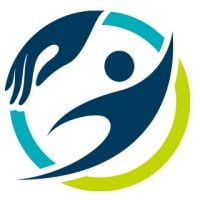
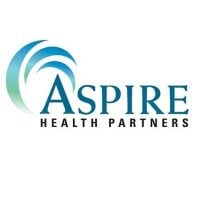

The facility name, logo and brand are the property and registered trademarks of ACT Center - Apopka, and are being used for identification and informational purposes only. Use of these names, logos and brands shall not imply endorsement. RehabNow.org is not affiliated with or sponsored by ACT Center - Apopka.

